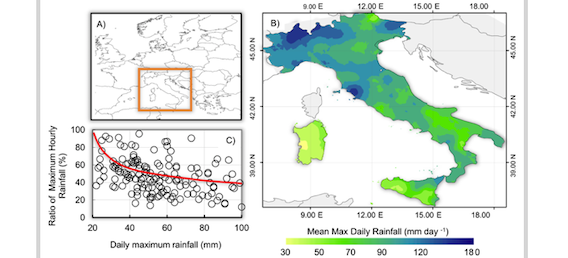Abstract
Damaging hydrological events are extreme phenomena with potentially severe impacts on human societies. Here, we present the hitherto longest reconstruction of damaging hydrological events for Italy, and for the whole Mediterranean region, revealing 674 such events over the period 800–2017. For any given year, we established a severity index based on information in historical documentary records, facilitating the transformation of the data into a continuous time-series. Episodes of hydrological extremes disrupted ecosyPhoto by Photoholgic on Unsplashstems during the more severe events by changing landforms. The frequency and severity of damaging hydrological events across Italy were likely influenced by the mode of the Atlantic Multidecadal Variability (AMV), with relatively few events during the warm Medieval Climate Anomaly dominated by a positive phase of the AMV. More frequent and heavier storms prevailed during the cold Little Ice Age, dominated by a more negative phase of the AMV. Since the mid-19th century, a decreasing occurrence of exceptional hydrological events is evident, especially during the most recent decades, but this decrease is not yet unprecedented in the context of the past twelve centuries.

Diodato, N., Ljungqvist, F.C. & Bellocchi, G. (2019) A millennium-long reconstruction of damaging hydrological events across Italy. Sci Rep 9, 9963. doi:10.1038/s41598-019-46207-7
